Most days I find myself thinking about death.
It’s a secret, almost casual thought. When I’m on the bus, I idly imagine someone hitting me from behind. There are invisible attackers waiting around corners. I die in plane crashes and earthquakes and house fires. I die in a myriad of situations that I cannot control.
This fear of my own demise is a pretty obvious death anxiety; a common consequence of coping with the death of someone close to you. Bereavement causes us to confront our own mortality, and it’s a scary prospect.
And yet, I don’t have any problem with talking about death.
For me, the more unexpectedly positive side of dealing with death is that I find the subject a lot easier to talk openly about. In fact, it’s much more than that.
Talking about death is a release for me. It’s cathartic. Getting deep into a conversation about the serious stuff allows my torrent of mixed-up emotion to spill out, and it turns my grief into something shareable and communal.
Six months after my Mum’s death I found myself on an internet forum where people were discussing what books to read after the death of a loved one. Someone had commented saying their mum had died a week ago in a car crash. This girl (let’s call her Lauren) was a year older than me and was deep in the midst of trauma, shock, confusion, loneliness – you name it, she was feeling it. I hurriedly replied, and soon we were emailing regularly.
For the next year or so, Lauren and I traded death chat. Funerals, friends, sex, alcohol, drugs: no topics were off limits because we both innately understood that we had nobody else in our lives who’d faced what we were facing. Nobody else was going to ‘get it’ like we did.
During that same time, I’d been referred to on-campus counselling by my university. I remember sitting in a stiflingly hot room while an impassive therapist placed a box of tissues on the table between us and immediately started probing me for specific details about my grief. An hour later I left the session, tears streaming down my face on a Tuesday afternoon, and firmly decided I would never go back.
That disastrous encounter cemented my idea that therapy wasn’t something helpful for me – and yet speaking online to a girl I’d never met who lived in southern Texas was immediately supportive in a totally unexpected way.
Talking about death is a strange thing. For the recently bereaved, some people prefer professional help; others can only speak to family; still more cope best with support from strangers. For everyone else, death is a confusing, awkward and ultimately scary topic.
Many of us want to talk about death, but we don’t know how to actually do it.
So why is death such a taboo subject?
Back in the Victorian era, grief was a public activity. People had huge funerals, photos were taken with the deceased, and widows used to wear black for two years. It alerted those around them to the circumstances, and grieving people were treated more gently by friends and strangers alike as a result.
Nowadays, the way the English behave around death has completely changed. We’ve somehow made grief into a very private and personal experience, assuming that we need to ‘stay out of the way’ and ‘get on with it’ behind closed doors. What this actually does is cause a huge amount of isolation.
As a topic, we steadfastly ignore the concept of death so much that it seems we’re embarrassed by it. And when someone’s actually died, we have very little idea of how to behave around those people who are grieving.
Nobody ever told me what losing my parents would feel like. Nobody explained how shellshocked I would be; how confused and isolated and traumatised my life would suddenly look.
And nobody warned me that I might lose friends over it; that other people might find it hard to cope with my bereavement too.
When I went back to university a few weeks after my mum’s death, the reactions I encountered were extraordinary. One girl who lived in my shared student house simply didn’t speak to me for months and constantly avoided being in the same room as me – apparently because she ‘didn’t know what to say’. I felt like a leper.
A couple of years later, I told the guy I’d been casually dating for a few weeks about Mum’s death and he never spoke to me again. I felt like I’d done something wrong, even while I was still grieving for her loss.
People tend to forget that death is the most natural thing in the world.
Ten years on, I’m more understanding of these types of reactions. Death and grief are seriously scary topics, and if you’ve got an anxious personality then your thought processes can spiral – particularly if you haven’t directly experienced dealing with a death.
But ultimately this still doesn’t sit right with me. Because if there’s one thing we can be certain of, we are all going to die. Before that, we’ll almost certainly have to cope with the death of someone close to us.
So why aren’t we preparing ourselves earlier for the emotional impact of this grief? Why are we pretending it won’t hurt until we discover, too late, how much it does?
This is why it’s actually really important to talk about death.
From an emotional standpoint, it’s really important to acknowledge that death is a thing.
I know it’s a reminder of our own mortality, but addressing the idea of death also takes away the shock value from future scenarios. If you haven’t talked about death before, you could well be shocked by the physical changes in someone who’s dying; the conversations you or they might suddenly want to have as the end draws near; the feelings which could overwhelm you during the process.
Then there’s the purely logistical side of discussing death.
Over 50% of British people haven’t drawn up a will. They haven’t told anyone about where they’d like to be buried or if they’d prefer cremation or what songs they’d like playing at the funeral. They haven’t told anyone their online passwords or what happens to to their diaries or revealed the existence of all that hereditary jewellery hidden in the attic.
I was singularly responsible for dealing with my dad’s death, and even though he’d been amazing at telling me his bank details and where his will was located, I still knew nothing about the necessary official processes. Google was an absolute lifesaver. Within a fortnight I was registering the death, buying multiple death certificates, closing bank accounts, booking a funeral slot, finding a church, choosing a coffin and paying a funeral director what felt like an exorbitant amount of money.
All of this is overwhelming and confusing regardless, but it’s also meant to be done for the very first time while you’re simultaneously dealing with the worst emotional phase of your life. Coping with death and grief when you’ve got no guidebook can make you think you’re going crazy – but it doesn’t have to be this way!
What are the real, tangible ways we can talk about death?
– Talk to your friends. I’m very lucky that none of my closest friends shy away from discussing death with me (although to be fair they’ve had ten years of me bringing up the topic!). Some of them have also lost parents or people close to them, but that doesn’t make them automatically keen to talk; however, they know it’s important to me and they want to help. Factor in a bottle of red wine and it’s that much easier to open up.
– Talk to your family. It might be a sensitive topic but it’s highly recommended to at least have a preliminary conversation with your immediate family about death – at least so you know what their thoughts and feelings are.
– Talk to a therapist. If you’re grieving and think therapy won’t help, I totally understand – but please do remember it’s always an option for the future (i.e. admitting I needed therapy undoubtedly changed my life). Even if you’re not grieving, exploring your thoughts about death with a therapist can be a really healthy thing to do.
– Talk to an organisation. Charities like Samaritans (116 123, open 24 hours), Mind (0300 123 3393 or text 86463) and Marie Curie (0800 090 2309) have dedicated phone lines for you to call and discuss whatever’s on your mind.
– Go to a grief workshop. If you’ve suffered a bereavement you can usually find support from your local council – either one-to-one grief support sessions or groups. It’s worth enquiring at local hospices and hospitals for similar services too.
– Go to a Death Cafe. This fantastic concept is very simple: drink tea, eat cake, and discuss death. I’ve been to one session so far, where I drank tea with strangers in a Buddhist centre in south London – and I really enjoyed chatting about the actual concept of death, instead of the event being framed like a support group or counselling session. There’s a network of Death Cafes all over the world, so it’s highly likely you have a local branch.
– Go to a loss meetup. I recently discovered ‘Let’s Talk About Loss’, a UK-based organisation which runs meet ups for 18-30 year olds who’ve been bereaved. It was a surreal experience to sit with a group of people my age who’ve all lost their parents, friends, partners, siblings and to bond over the feelings we share. ‘Let’s Talk About Loss’ currently run meetups in London, Nottingham and Bristol but plan to extend that to more locations in the future.
– Find other people who’ve been bereaved. When I speak to people who’ve been through the same kinds of loss as I have? You can’t shut us up. We’re eagerly and excitedly comparing experiences, mutually commiserating over the emotional minefield we’ve both gone through.
Realising other people know exactly what I mean makes me feel so much less alone.
Talking about death doesn’t have to be scary. I promise.
Sometimes I feel strangely lucky that I’ve had to confront death so early on in life, because I know I’m able to cope. I’ve lived through watching both my parents die and I’ve come out the other side – battered and bruised but ultimately OK.
Death is one of the biggest things which can happen to us, but talking about it doesn’t have to be all doom and gloom. When it really comes down to it, talking about death just means allowing yourself permission to be sad and vulnerable about the complex emotions we all feel surrounding death.
For me, the scariest thing about death is that it highlights how easy it is to find yourself alone and isolated in your own feelings. But it’s important to remember that talking about death doesn’t make it come any closer to us. It just allows us to feel less scared, and more prepared.
I’m still learning how to be comfortable with the idea of my own death. But at least I’m very happy to discuss the topic in general. And that’s a good enough start.

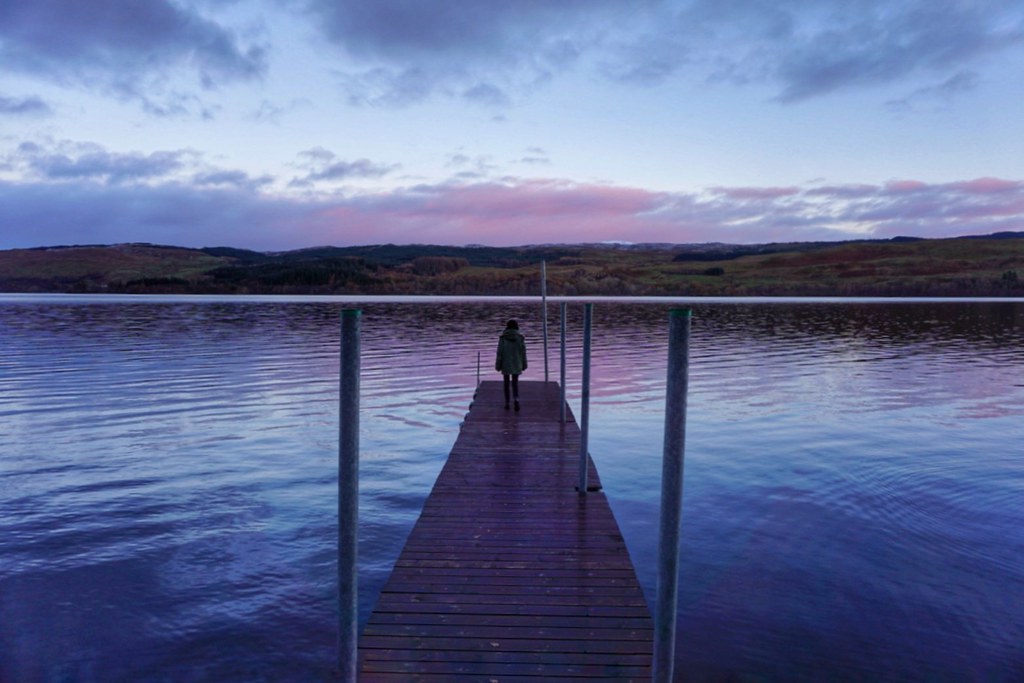
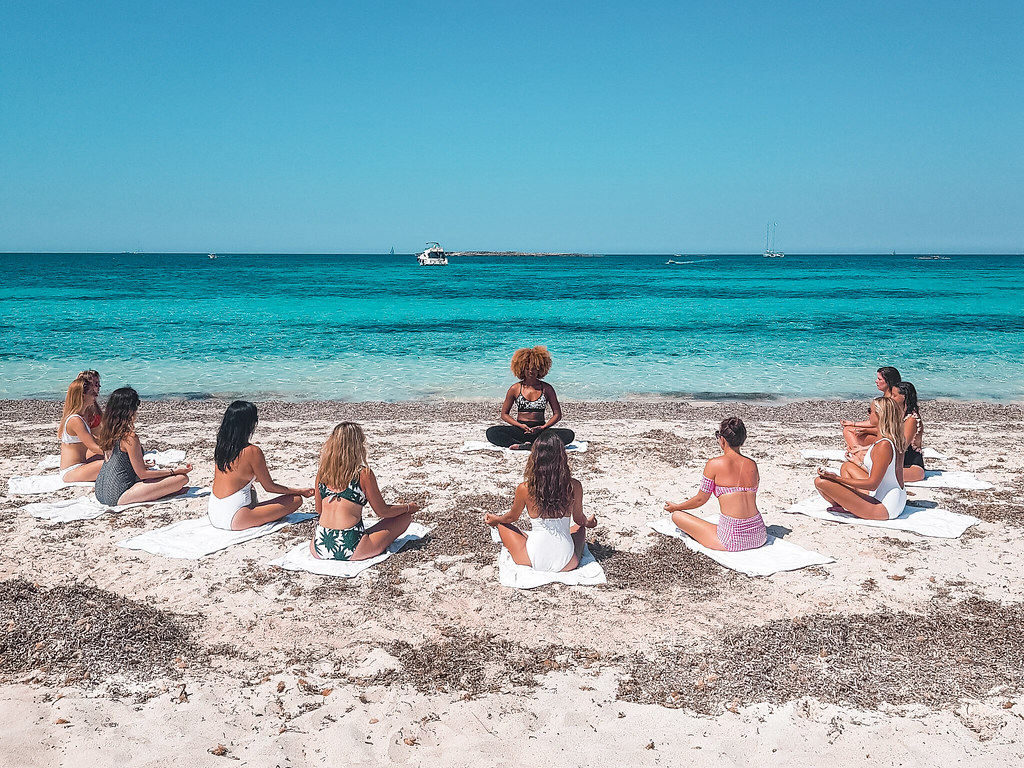


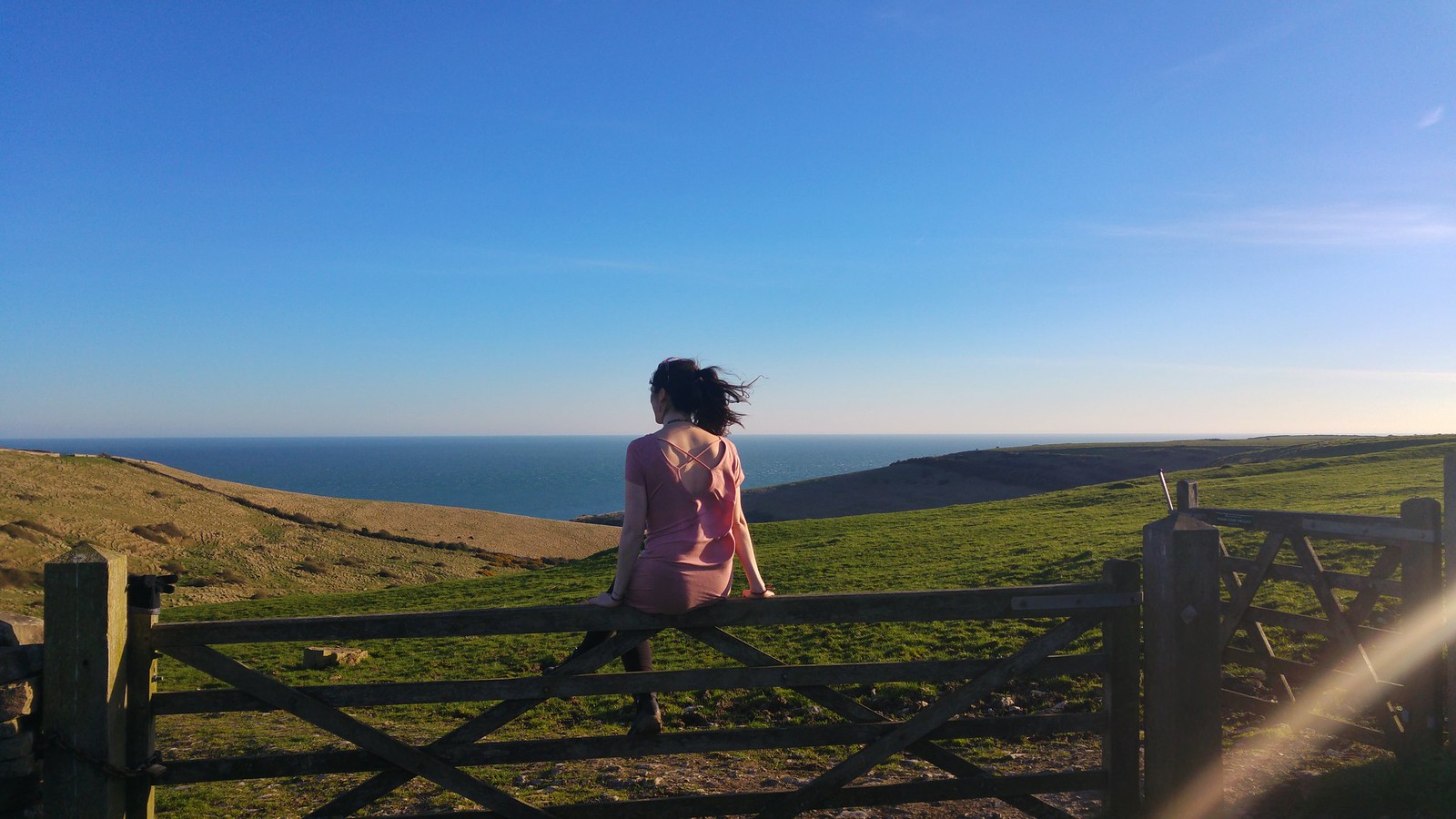
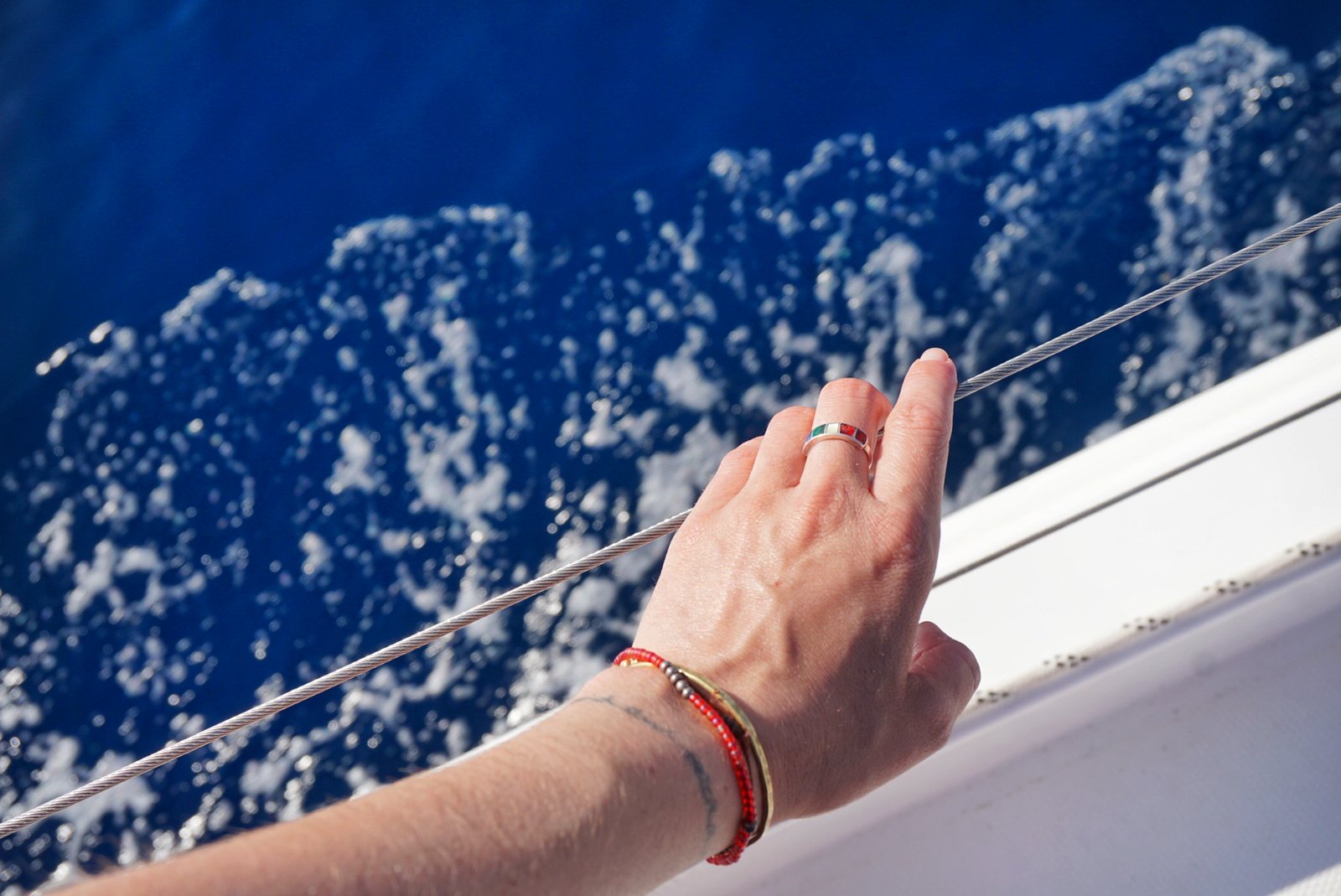

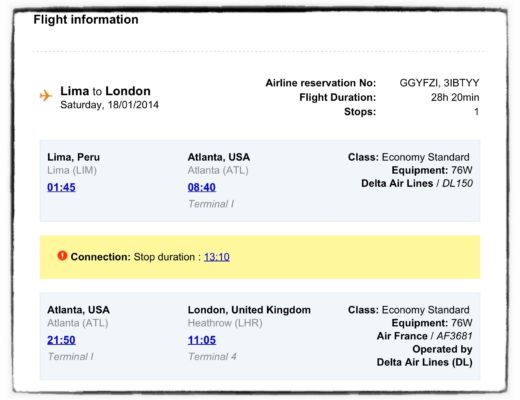
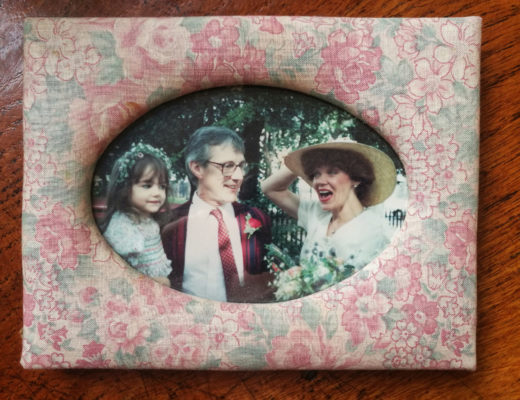
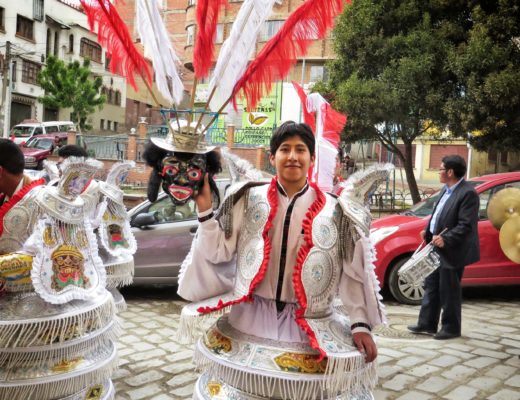
15 Comments
Natural Gnomead
April 20, 2019 at 3:15 pmGreat write-up. I lost my Dad and brother within eight months of each other four years ago. I can count on one hand the amount of people who have actually spoken to me about it after the initial ‘sorry for your loss’ phase! Sometimes it feels very lonely belonging to the grief club!! I’ve often thought a blog or a book would be great for others to read. go for it!
Flora
May 31, 2019 at 12:03 pmArgh I totally know that feeling! I know ‘sorry for your loss’ is essentially the phrase people have become used to saying – but it definitely hurts more when it turns out to be something of an empty statement. Fab to hear that you think a book is a good idea as I’m working on it now (although not doing too much at once as it turns out it’s a bit of an emotional trigger – who’d have thought?!)
Mikeachim
April 20, 2019 at 3:55 pm1) I’d read the hell out of that ebook.
2) In my case, thinking and talking about death, especially thinking it through calmly, is proving the only way to think about why life’s worth living. They go together, which is a thing some people get wrong, as if death-thinking is innately depressive and negative. But it’s also honest. Once you stop BS’ing yourself about the bad things, the dread recedes (because it has less power to derail you) and the good things are within reach again. That’s my own take right now.
Flora
May 31, 2019 at 12:52 pm1) FANTASTIC NEWS!
2) Yup, it’s taken me a long while to see death and life as two sides of the same coin. Once you realise they’re not so separate after all it can change a large amount of your thinking – although I’m still not at a place where the dread of death has left me! Annnd that’s what all the therapy is for :p
Agness | the adventure traveler
April 22, 2019 at 7:40 amYou said, “Death is actually a thing.” and I agree with you. For us travelers, it may happen in an instant and we may never know if it’s our last day or not. I think this piece is really interesting and something that should be discussed no holds barred.
Flora
May 31, 2019 at 12:06 pmTo be honest, I can’t blame people for not wanting to confront the certain reality of death! But it does get frustrating when you’ve been forced to think about it so much, only to see plenty of people burying their heads in the sand. And you’re right – travellers put themselves in a lot of potentially dangerous situations (I can’t even think about how many unsafe vehicles/roads/drivers I’ve experienced!)
Caroline Eubanks
April 22, 2019 at 2:35 pmI am FASCINATED by Victorian death culture. There’s a Victorian cemetery near my house and they put on incredible events like the Death Cafe, concerts in the cemetery, and tours. Their bookstore sells the book From Here to Eternity by Caitlin Doughty, which I haven’t read yet but want to. Another great post, of course!
Flora
May 31, 2019 at 12:07 pmSnap! The Victorian cemetery round the corner from me has always been a place that intrigues me (although there’s yet to be a concert there!). I really need to read some of Caitlin Doughty’s work – I’ve watched the occasional Youtube vid but not enough!
Glynis
May 13, 2019 at 5:33 pmDear Flora
I admire your honesty and would definitely be very interested in reading your book. As someone who lost their mum at 15, later my sister and father in adulthood, I still struggle with the grief, it has somehow compounded although many years apart. It is something which people coping with the grieving process would definitely appreciate. Congrats on doing such a thoughtful and helpful job in sharing these very important experiences.
Flora
May 31, 2019 at 12:23 pmI know that compounded feeling, Glynis – it’s a bizarre trait of grief that it’s so completely non-linear! When my dad died it felt like I was freshly mourning my mum all over again, despite it being almost ten years prior. So glad to hear you’d be interested in a book, too 🙂
Ali
May 24, 2019 at 9:10 pmDear Flora,
I think an ebook on this topic is a great idea and I couldn’t agree more with your thoughts in this post! As someone who has lost both of her parents by the time I was 30 and having lost my mom at 8, I greatly appreciate your articles and open candid thoughts on death and grief. I stumbled upon your blog shorty after my father passed away when googling for support and help, similar to what you’ve mentioned you did. I quickly found a lot of noise out there, some helpful, some not so much, then I came across your site which was really amazing! Not only because I can relate to losing both parents early in life but all the helpful resources, links and ideas you mention. So thank you for sharing all of this!
Flora
May 31, 2019 at 12:27 pmOhh that’s so wonderful to hear that my articles cut through some of the online noise, Ali! I’m starting to realise the value of combining resources with personal experience – it changes how you read about the whole ‘coping with grief’ topic once you’re aware that it’s coming from a real person who’s also been through it. I’m so sorry you’re in the under-30 club too, but I hope you’re doing alright at the moment 🙂 Sending love xx
Emily
June 14, 2019 at 8:11 pmHi Flora, I just wanted to say thank you for writing so openly about loss and grief. I am 23 and my mother is in the process of dying. She fell ill this past October, and she just recently moved to a hospice home after a very long, stressful, painful battle trying to overcome all her illnesses as best she could. We do not think it will be long until she passes. As a naturally anxious person and big time planner, my knee jerk reaction was to do whatever I could to best “prepare” myself, which has often led to me reading anything I could find online from people who have been through the loss of their mother. But, more specifically, I was desperate to find words from other young women in their twenties. Finding your site and reading through your pieces on grief has been so tremendously helpful. So much material I’ve found has felt very preachy, very much like a self-improvement guide, but your pieces make me feel like I’m discussing the topic with a friend over coffee. It is refreshingly honest and personal. I do not have many friends who have lost parents yet, so I find great comfort in your writing whenever I feel like I just want to hear something supportive from someone who actually gets it. I would certainly be interested in reading more from you about death and grief. But I also just wanted to say thank you above all else. Your openness is helping me.
Flora
June 21, 2019 at 4:59 pmThanks so much for sharing your story, Emily – and I’m so sorry to hear you’re going through this. I know what you mean about the online searches: there’s a deep need to find people who’ve had the same or similar experience to yours, and moreover to hear their stories in a ‘normal’ way as opposed to something like a textbook! Please feel free to reach out if you need to chat about all this with someone – I’m always around (and if you’d prefer email it’s flora (at) floratheexplorer.com) Sending you lots of love xx
Divine Ahadzie
October 24, 2024 at 1:42 pmHi Flora, thanks for sharing this. Really useful read. I recently lost my daughter through a tragic road traffic accident and it has not been easy for the family. My daughter was two months away from graduating and got run over by a vehicle while cycling on her university campus. To say the family is devastated is perhaps to say the least. We are in indeed totally broken. Of course, families and friends will do their best and offer help. However, this will definitely be short-lived especially after the funeral. Life will have to continue as they say and rightly so. You will be left alone and that is when the real grieving starts. In coping with this hard-hitting tragedy, I found myself immersed online reading about articles such as yours through most of the day and night. I would say, I have perhaps read from A to Z, be it on social media or academic, anything I came across on death. I guess the trauma and pain did not even let me realize how much time I was spending online in solitary confinement. It has been really energy sapping but I think it has also been helpful in making me gain insight as to how to relate to family, friends, colleagues and the public, who understandably are also often confused amid the shock, pain and trauma associated with death. I really agree with you that, there needs to be some open discussion about death, difficult as it may be. Yet, and admittedly so, death is not a comfortable subject for families to openly talk about. Again, you are not also sure how society will receive and/or perceive your gesture. What I do now in my grief is to regularly go online to read articles like yours to keep me reflecting and am lucky to have chanced on this piece today. I would love to read your book when it is finally out.